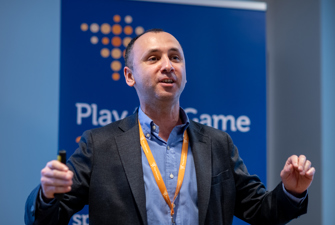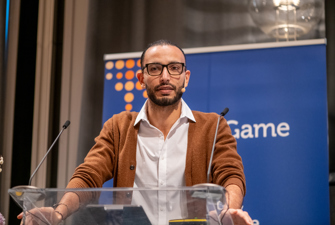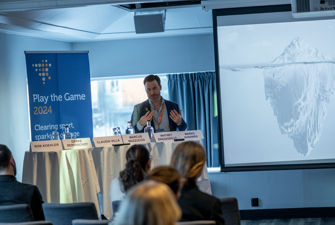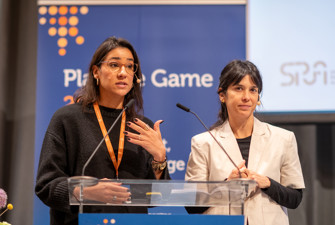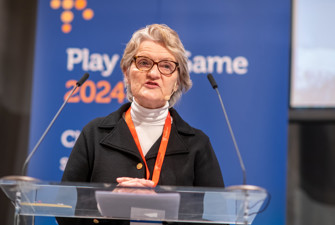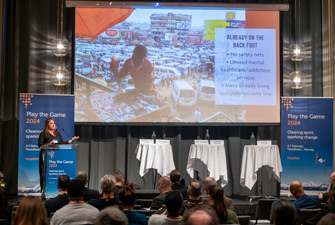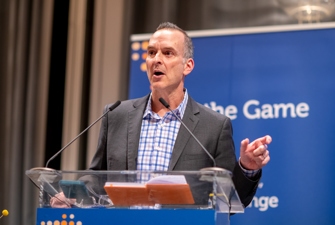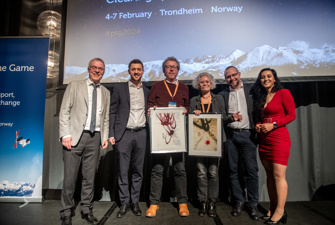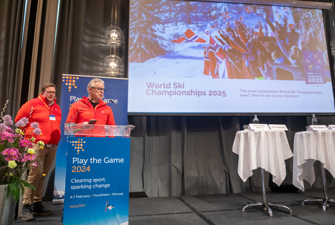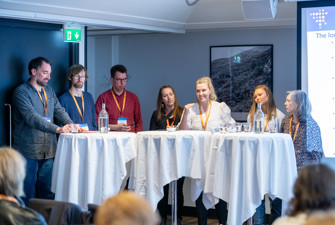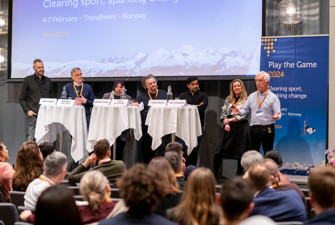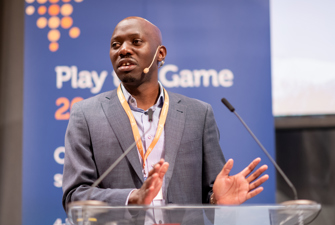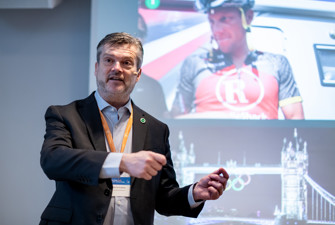Money spent on investigating match-fixing cases would be better spent on education
Better education of athletes could be the key to stopping match-fixing, but current systems of education and support for whistleblowers do not work.
An overhaul on the delivery of education to players around match-fixing and whistleblowing came under fire in a well-attended session at Play the Game 2024 on match manipulation.
Speaking on a panel entitled 'Match-fixing and sports manipulation: Athlete perspectives', Andy Harvey, a consultant and lecturer who has worked on fixing for a variety of bodies including the players union FIFPRO, slammed current programmes.
“Players don’t know what the rules are and what they are supposed to be,” he said.
He added:
“The current level of education isn’t effective and significantly focused on the athletes and their hopes, dreams and fears."
“Too much education is delivered by a lawyer from the national association or by a data company or a betting company and they have a conflict of interest. Integrity is not being delivered by the right people."
“When you deal with the symptom rather than the cause, you end up with large sums of money being spent on tribunals, investigations and legal costs that could be better spent on education.”
Harvey mentioned that 20 million British pounds had been spent investigating the cost of corruption in tennis back in 2018, and 500,000 British pounds were spent on a more recent single case of a player accused of betting on their own matches in England.
Harvey has started a consultancy, GameChanger360, with Moses Swaibu, a former non-league player in England who was sent to prison a decade ago for conspiracy to commit bribery as part of a match-fixing case, and he wants to radically change player education.
“The solution has got to be to start focusing on promoting the correct behaviours. We need social marketing about education and taking the next step to give players, coaches and referees the right motivation to report or not to take a small bribe," Harvey said.
“We need to start with the focus on the athlete; do it in ways that are amenable to young people, who get most of their information through their phones."
“We also need to make sure that these correct behaviours are given 100 per cent support by governing bodies and others. One without the other is not effective. Governing bodies and leagues have got to put their own house in order. They need to do that in a way that fosters a culture of integrity, and we are a long way from that."
“There is a whole ecosystem that needs to be reformed,” he said.
In a presentation on explaining athletes' corruption behaviours, fellow panellist Rocco Porreca, a senior lecturer at Oxford Brookes University in England, agreed, saying: “We need strategies that target and instil anti-corruption behaviour.”
Whistleblowers need better support
Corentin Segalen, chair of the Council of Europe’s Group of Copenhagen body on match-fixing also argued for widespread change in how manipulation is countered.
“Whistleblowing is not working,” says Segalen, who detailed the early workings of the MotivAction project, which is researching how to promote, protect and handle alerts for fixing.
“When you have an athlete that has fixed a match and it takes five years to bring them to justice, they will probably have finished their career by then, so it makes no sense."
“We need to create an integrity community to support whistleblowers. This is very important so if someone wants to report they will have the support of fellow athletes, who will tell them they are doing a good thing.”
Age manipulation is a serious problem
The fight to combat a less headline-grabbing but equally rampant form of manipulation was explained by Sanchita Aidadani, a sports integrity analyst at the Athletics Integrity Unit, who warned that age fraud was “a lot more prevalent than people think. There are lots of cases."
“Age manipulation is a serious problem in sport as a junior athlete could be competing against an older athlete with a larger skillset that they have had more time to develop.”
Some athletes have been caught who are up to seven years older than the age restrictions.
Many cases involve forging documents, which is a crime in many countries, warned Ms Aidadani, and it also means that athletes caught travelling on false documents risk being denied a visa from some countries.
